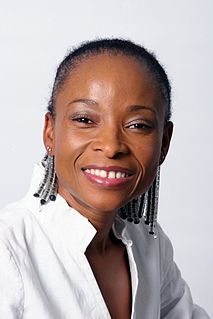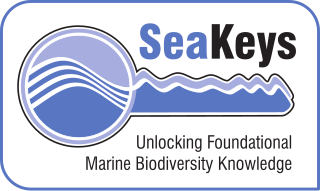Related Research Articles

Vandana Shiva is an Indian scholar, environmental activist, food sovereignty advocate, ecofeminist and anti-globalisation author. Based in Delhi, Shiva has written more than 20 books. She is often referred to as "Gandhi of grain" for her activism associated with the anti-GMO movement.

Bioprospecting is the exploration of natural sources for small molecules, macromolecules and biochemical and genetic information that could be developed into commercially valuable products for the agricultural, aquaculture, bioremediation, cosmetics, nanotechnology, or pharmaceutical industries. In the pharmaceutical industry, for example, almost one third of all small-molecule drugs approved by the U.S. Food and Drug Administration (FDA) between 1981 and 2014 were either natural products or compounds derived from natural products.

The San peoples, or Bushmen, are members of various Khoe, Tuu, or Kxʼa-speaking indigenous hunter-gatherer cultures that are the first cultures of Southern Africa, and whose territories span Botswana, Namibia, Angola, Zambia, Zimbabwe, Lesotho and South Africa. In 2017, Botswana was home to approximately 63,500 San people making it the country with the highest number of San people.

Hoodia is a genus of flowering plants in the family Apocynaceae, under the subfamily Asclepiadoideae, native to Southern Africa.

The University of Cape Town (UCT) is a public research university in Cape Town, South Africa. Established in 1829 as the South African College, it was granted full university status in 1918, making it the oldest university in South Africa and the oldest university in Sub-Saharan Africa in continuous operation.

The Council of Scientific and Industrial Research, abbreviated as CSIR, was established by the Government of India in September 1942 as an autonomous body that has emerged as the largest research and development organisation in India.
Traditional knowledge (TK), indigenous knowledge (IK) and local knowledge generally refer to knowledge systems embedded in the cultural traditions of regional, indigenous, or local communities. According to the World Intellectual Property Organization (WIPO) and the United Nations (UN), traditional knowledge and traditional cultural expressions (TCE) are both types of indigenous knowledge.
The Traditional Knowledge Digital Library (TKDL) is an Indian digital knowledge repository of the traditional knowledge, especially about medicinal plants and formulations used in Indian systems of medicine.

Hoodia gordonii, also known as Bushman’s hat, is a leafless spiny succulent plant supposed to have therapeutic properties in folk medicine. It grows naturally in Botswana, South Africa and Namibia. The species became internationally known and threatened by collectors, after a marketing campaign falsely claimed that it was an appetite suppressant for weight loss. The flowers smell like rotten meat and are pollinated mainly by flies. The indigenous San people of the Namib desert call this plant ǁhoba is used to refer to all species of Hoodia.
The Council for Scientific and Industrial Research (CSIR) is South Africa's central and premier scientific research and development organisation. It was established by an act of parliament in 1945 and is situated on its own campus in the city of Pretoria. It is the largest research and development (R&D) organisation in Africa and accounts for about 10% of the entire African R&D budget. It has a staff of approximately 3,000 technical and scientific researchers, often working in multi-disciplinary teams.

Rosina Mamokgethi Phakeng is a South African professor of mathematics education who in 2018 became a vice-chancellor of the University of Cape Town (UCT), She has been the vice principal of research and innovation, at the University of South Africa and acting executive dean of the College of Science, Engineering and Technology at UNISA. In 2018 she was an invited speaker at the International Congresses of Mathematicians.
The Maya ICBG bioprospecting controversy took place in 1999–2000, when the International Cooperative Biodiversity Group led by ethnobiologist Dr. Brent Berlin was accused of engaging in unethical forms of bioprospecting (biopiracy) by several NGOs and indigenous organizations. The ICBG had as its aim to document the biodiversity of Chiapas, Mexico and the ethnobotanical knowledge of the indigenous Maya people – to ascertain whether there were possibilities of developing medical products based on any of the plants used by the indigenous groups.

Fulufhelo Vincent Nelwamondo (OMS) is an electrical engineer by training, and holds a PhD in Electrical Engineering from the University of the Witwatersrand, in South Africa. He is the youngest recipient of the Harvard-South Africa Fellowship Programme amongst other honours. His research and practical experience has covered a wide spectrum of areas, including software engineering and computational intelligence. His interests include biometrics-based systems, data mining and machine learning tools.
John Parkington is an Emeritus professor in archaeology and hunter-gatherers, Paleoenvironmental reconstruction and human ecology, prehistoric art, and coastal archaeology. He has suggested that since fish provide an important nutrient for the brain, the consumption of fish led to the emergence of the first really intelligent humans in the Western Cape region of South Africa. In February 2000 South African President Thabo Mbeki mentioned the letter he had received from Parkington, regarding the protection of archaeological heritage sites, in his address at the opening of South Africa's Parliament.
Open access to scholarly communication in South Africa occurs online via journals, repositories, and a variety of other tools and platforms. Compared to other African nations, open access in South Africa has grown quickly in recent years.
Rachel Kerina Chikwamba is a Zimbabwean plant geneticist born in 1967. She is in the Council for Scientific and Industrial Research (CSIR) Group Executive: Strategic Alliances and Communication. She is an active member of the Academy of Science of South Africa.

SeaKeys is a large collaborative marine biodiversity project funded through the Foundational Biodiversity Information Program in South Africa. The purpose of the project is to collect and distribute genetic, species and ecosystem information relating to marine biodiversity in southern Africa, which may be used to support informed decision-making about the marine environment.
At its essence, intellectual property rights are described as “a legal framework for contractual agreements concerning technologies, which encourage the institution of ‘markets for technology’, making easier the international transfer of technology and its diffusion at the local level.” The discussion that has taken place, concerning intellectual property rights and the following agreements, centers around spreading global knowledge and technologies. Intellectual property has been largely discussed and gone through a series of changes. At the globalized level, a global network for ideas led institutions to put policies in place and key players to form opposing viewpoints. Beyond intellectual property, alternative sources for innovation include forming partnerships and moving business activities abroad.
Biopiracy is defined as the unauthorized appropriation of knowledge and genetic resources of farming and indigenous communities by individuals or institutions seeking exclusive monopoly control through patents or intellectual property. While bioprospecting is the act of exploring natural resources for undiscovered chemical compounds with medicinal or anti-microbial properties, commercial success from bioprospecting leads to the company's attempt at protecting their intellectual property rights on indigenous medicinal plants, seeds, genetic resources, and traditional medicines.
Carolyn Williamson is a South African virologist and microbiologist who is a professor of medical virology at the University of Cape Town. She is a fellow of the Royal Society of South Africa and the African Academy of Sciences, and a member of the Academy of Science of South Africa. Her research focuses on HIV vaccine development and prevention of the disease.
References
- 1 2 "The People | Bio-economy Research Chair" . Retrieved 15 March 2022.
- 1 2 3 "Wynberg tackles biopiracy". www.news.uct.ac.za. Retrieved 15 March 2022.
- 1 2 3 "Wynberg fights biopiracy". www.news.uct.ac.za. Retrieved 15 March 2022.
- 1 2 3 "Professor Rachel Wynberg | Environmental & Geographical Science". www.egs.uct.ac.za. Retrieved 15 March 2022.
- ↑ "Rachel Wynberg". Global Bioeconomy Summit 2020. Retrieved 15 March 2022.
- 1 2 "Members". www.assaf.org.za. Retrieved 15 March 2022.
- ↑ "Rachel Wynberg | TRUST". trust-project.eu. Retrieved 15 March 2022.
- ↑ "Struggle over Hoodia patent continues in South Africa". web.williams.edu. Retrieved 18 September 2022.